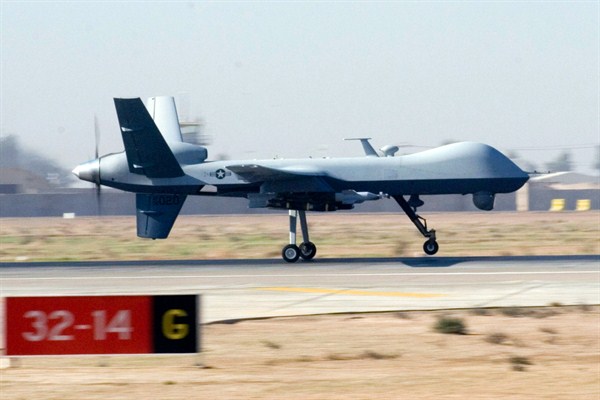Last week, the Stimson Center, an important Washington think tank that studies global security, released a major report on U.S. drone policy. This was noteworthy both because the topic is such a hot one and because of the stellar cast involved. The task force that produced the report was led by retired Gen. John Abizaid, former commander of the U.S. Central Command, and Georgetown University law professor Rosa Brooks, who recently served as counselor to the undersecretary of defense for policy. The other task force members also brought deep and wide-ranging experience in the military, security policymaking, law enforcement and intelligence.
As could be expected from a group like this, the report was serious and thoughtful, capturing the current debate about the use of drones and the central role they play in American national security strategy. But years from now what may stand out is less what the report explicitly says than what it implicitly reveals: The United States continues to grapple with the 21st-century security environment using concepts and ideas from an earlier and long-gone time. The report reflects a body of ideas about security—an orthodoxy—with declining effectiveness and relevance.
This orthodoxy begins with the idea that sovereign nation-states are the central participants in security. This system operates on norms and rules made by nation-states, whether formal or informal. Formal rules, codified in international law and treaties, are particularly important. The orthodoxy assumes a clear distinction between war and peace, with different rules of acceptable behavior for the two conditions. Wars are won by destroying the armed forces and war-making capacity of enemy states. Because war became so terrible with industrialization and the invention of nuclear weapons, intense effort was devoted to deterring or preventing it. If prevention failed, wars should be limited if possible. And because war is so horrible, the American political system set the bar high for going to war by making sure that Congress agreed that it was necessary.

